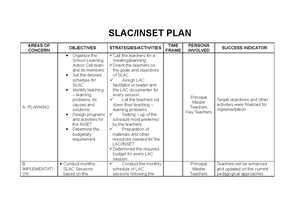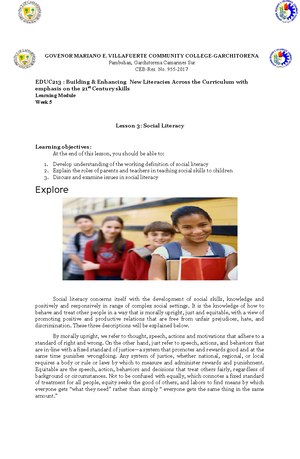- Information
- AI Chat
Was this document helpful?
Academic Discourse and Community
Course: Bachelor of Secondary Education (EDU1)
671 Documents
Students shared 671 documents in this course
University: University of Nueva Caceres
Was this document helpful?

Academic Discourse and Community
Academic discourse can either facilitate or hinder com
munication among individuals. Audience and discourse
are inextricably linked, and through the employment of
certain discourse tropes and conventions, a researcher
can either broaden the audience of a text or narrow that
audience to a specific academic or general population.
In doing so, the researcher is participating in what is
often referred to as a discourse community. A discourse
community is a group of individuals who share a com
mon discourse. Most scholars have varying stakes
in any number of discourse communities. In an age
of academic specialization, it is not uncommon for a
researcher to have one or two primary discourse com
munities in which he or she regularly participates and
contributes to the discourse. However, many research
ers, in seeking partnerships outside their specialty, will
cross lines of discourse and enter into other discourse
communities. The flexibility within discourse enables
this collaboration. Granted, a researcher who does not
regularly participate in a particular discourse commu
nity may not be able to fully engage with the entire
range of knowledge within that field, but that does not
preclude that researcher from contributing to the dis
course. Indeed, an outsider’s perspective in a discourse
community is often quite valuable. Nevertheless, what
remains paramount in working with discourse commu
nities is recognizing both the commonalities and the
differences apparent in discourse and how these fea
tures relate to the audience for the text.









